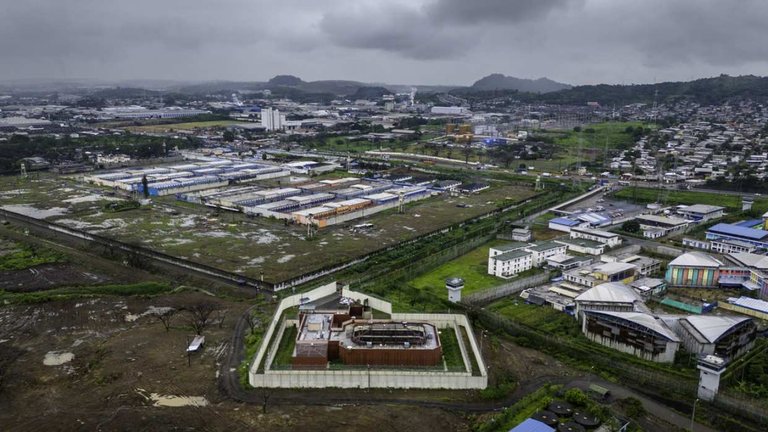The Latin American Report # 367

Since President Daniel Noboa had the Army take control of Ecuador's deadly prison system at the beginning of this year, violent incidents involving dead inmates have ceased to make headlines. Most of these events in recent years, which have left hundreds of people dead, took place in a prison complex in the city of Guayaquil, a sort of ad hoc capital of organized crime in the South American country. Despite the extensive police and military deployment in prisons and streets, there are several provinces where insecurity continues to cover with its dark cloak a good part of a citizenry that has long lived in fearing dying victim of an indiscriminate shooting outside a bar or in a stadium. This Tuesday the state agency that oversees the prison system reported the death of 15 inmates after clashes in the super-dangerous Penitenciaría del Litoral, in Guayaquil; 14 inmates were wounded.
 A view of the prison complex in Guayaquil (source).
A view of the prison complex in Guayaquil (source).Drums of economic and political war are beating in Washington
The decisions being considered for Donald Trump's Cabinet 2.0, some of them officially confirmed, point to a hawkish configuration in foreign policy, for the world and particularly for Latin America. This is well explained by the like-to-be appointment of Cuban-American Senator Marco Rubio as head of Foggy Bottom. Rubio, a furious opponent of China and Iran and in general of anything that smacks of progressivism or socialism in Latin America, would promote maximum-pressure policies, especially of an economic nature, but maybe without getting too involved in regime change strategies that do not coincide with Trump's non-interventionist approach. The only unknowns in this regard are the cases of Cuba—a key issue on Rubio's agenda because of his origin—and Venezuela.
The Deep State will decide on the latter, but, in the Cuban case, I do not doubt that any chance of getting the Island off the SST list—a meaningless designation—or relaxing active sanctions would be lost. For both countries, perhaps including Nicaragua in part, the picture closes on the possibility of a red majority Congress in both houses—potentially led in the Senate by Floridian Rick Scott, endorsed by Elon Musk—and a National Security Council tailored to Rubio's visions. The current Senator has a lot of experience overseeing foreign policy and intelligence issues—he is or was on his way to being chairman of the Intelligence Committee in the "upper" chamber—which would serve him well in taming any bureaucrat trying to derail the agenda.
Breaking News: Donald Trump is expected to name Senator Marco Rubio, a foreign policy hawk on China and Iran, as his secretary of state. https://t.co/Ar2CkAH6up
— The New York Times (@nytimes) November 12, 2024
Trump's first day in the White House promises to be very active, Reuters confirms, and in that effort, Latin America has points that are sensitive to it, such as the promise to begin a program of mass deportations—including simple undocumented immigrants without a criminal record, although the priority would be the thousands with unexecuted deportation orders—and to disavow initiatives promoted by the Biden administration (the 47th President has already chosen the personnel he believes are best suited to undertake the task). Meanwhile, on the economic front, although Trump's victory has meant a revival of the cryptocurrency market and other financial assets, for Latin America it has meant the depreciation of its currencies and stock markets because of a stronger dollar, with Mexico as the country most in the spotlight in this regard due to that and other clouds.
And this is all for our report today. I have referenced the sources dynamically in the text, and remember you can learn how and where to follow the LATAM trail news by reading my work here. Have a nice day.


Posted Using InLeo Alpha